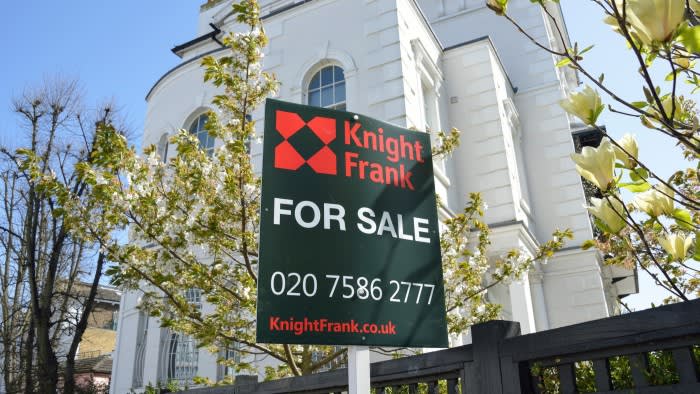
Unlock the Editor’s Digest for free
Roula Khalaf, Editor of the FT, selects her favourite stories in this weekly newsletter.
Back in 1993 when I was a junior researcher at the Institute for Fiscal Studies, I wrote that if the new council tax was to remain credible, it would need to be responsive to large shifts in property prices. “The only way it will be able to do so is by regular revaluations of the capital values attached to properties,” I argued.
Three decades on, UK property taxes have completely lost touch with house prices. My advice, however, is not the standard economists’ mantra that the taxes need immediate reform. Rather, it is that things are so bad that any government would be wise to tread extremely carefully.
Of course, it is correct to say UK property taxes are a mess. Since the last valuation in April 1991, house prices in London have risen roughly twice as fast as those in the North of England, yet the tax rates paid on London property have nothing like doubled relative to other regions. If anything, the amount levied has gone the other way. Council tax has lost legitimacy among the public and economists. The chancellor wrote in 2018, it was, “at the very least long overdue a re-evaluation and revision of existing bands”.
Things are a little more complicated than that. Just because London house prices have gone up without council tax following, does not prove that those in the capital pay too little. Stamp duty, levied on property transactions, is a bad tax that discourages mobility but also hits high-value homes hardest. This offsets some of the regional bias. Inheritance tax mops up another chunk of council tax unfairness; its revenues are extremely concentrated in London and the South East.
The argument for reform should not be framed in relation to revenues from one or other property tax. The most important concept to grasp is that any levy will be reflected in house prices.
Had council tax bills reflected the property market since 1991, London’s house prices would not have risen so much and regional gaps would have been smaller. This would not have made London property cheaper (people would have paid more in tax rather than more to the previous owners). But the tax would have been responsive to market trends, fairer and more legitimate.
All of these reasons explain why it’s hard to find an economist who disagrees with radical reform to UK property taxes. They often talk about the need for some transitional protection, but it is an afterthought.
This is the fundamental error. The transition to any more rational regime must be central to reform, not tacked on at the end. Because taxes are capitalised into house prices, the fact it took us a generation to get into the present mess means it would probably take another to emerge with minimal scars.
If government chooses to do something fast — or just to raise some money to plug a hole in the public finances — it should expect an entirely justified backlash.
Those who bought expensive property in London and the South East in the past 20 years, now a core Labour demographic, would be hit in three ways. They have already had to consume less to enable them to finance buying homes that were more expensive because of council tax’s flaws. They would suddenly be faced with much higher tax bills — and their properties would decline in value from rebalancing the system. Given this, a tax that suddenly shot up because of revaluation would itself lack fairness and legitimacy.
However sensible any property tax reform might be, it should be done very slowly and preferably cross-party, so that the issue does not become a dividing line in future elections.
Lancing the boil and doing something more radical will almost certainly backfire. If this Labour government proposes such a change, it will face huge opposition. And if it were to then lose the next election, the necessary property tax reforms would still not happen.





